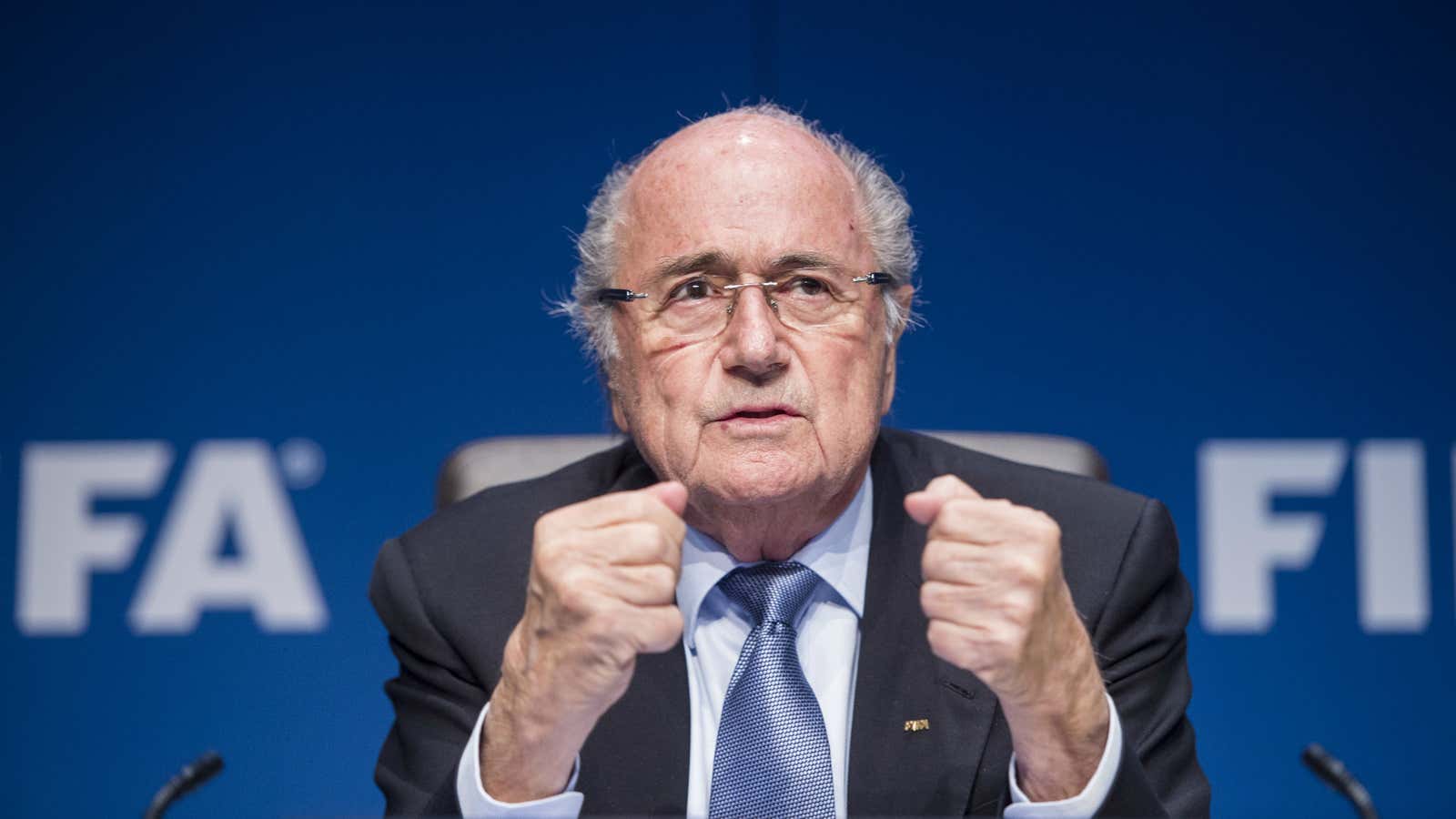With breathtaking effrontery, Sepp Blatter is now portraying himself as a crusader against corruption within FIFA, soccer’s scandal-plagued ruling body, and his personal fiefdom for the past 17 years. Speaking at the opening ceremony of the federation’s annual congress in Zurich—a few miles from the hotel where police arrested several FIFA officials on May 27, as part of an investigation into systematic bribe-taking in the organization—Blatter sought to put the blame on “a minority of individuals,” and pledged he would ”not allow the actions of a few to destroy the actions of those who work so hard for football.”
Absent an unlikely attack of his conscience, Blatter will allow his name to remain on the ballot in Friday’s election—and only a mass outbreak of shame among the FIFA membership will prevent him from winning. (It doesn’t help that the main qualification of his only rival, Ali bin Al Hussein, is that he is the brother of Jordan’s king.)
It will matter little that UEFA, the body that supervises soccer in Europe, has decided to throw its weight behind Al Hussein: it has only 54 members, out of a total FIFA membership of 209. In the election, the vote of Anguilla, which is dead last in the FIFA ranking of countries by their prowess on the field, is equal to that of any UEFA member—even Germany, the current world champion.
Blatter has used his four previous terms as president to disburse largesse and patronage among the FIFA membership, and can bank on a majority of the votes outside Europe. At a gathering of North and Central American members in the Bahamas last moth, Blatter was lavished with praise; one speaker compared him with Jesus, Moses, Mandela, and Lincoln.
But even if Blatter is reelected tomorrow, it is unlikely he will be able to escape the scandal that now threatens to consume the world’s most popular sport. Calls for his ouster are spreading, and not just within soccer: British prime minister David Cameron has joined the chorus of condemnation. Perhaps more importantly, discontent is rumbling among the sponsors that provide Blatter with the largesse he distributes.
But potentially most damaging of all is the fact that members of UEFA are now openly entertaining the possibility of a boycott of future World Cups if Blatter doesn’t step down. The European votes may not be enough to bring Blatter down, but the continent accounts for 14 of the top 20 teams on FIFA’s rankings. The prospect of a World Cup without Germany, Spain, Italy, the Netherlands, England, et al, would attract few fans, and fewer sponsors.
So whatever the outcome of Friday’s FIFA vote, Sepp Blatter has already lost.
